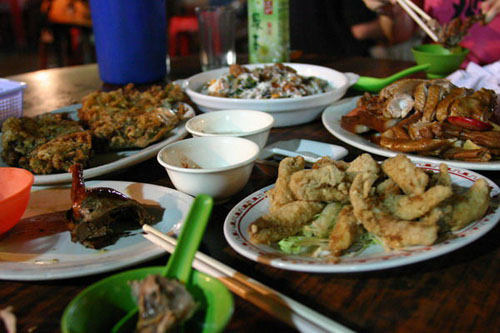《南华早报》最近的一篇报道称,中国的“小姐姐”们正迅速成为消费的推动力。随着社会观念的转变,“小姐姐”们有了更多的金钱和信心消费。无论是食品、电视节目、化妆品,还是奢侈品、医疗美容、以及互联网,“小姐姐”们带动了各行业的繁荣发展。

Girls wearing ancient costumes parade in Yuyuan Garden, East China's Shanghai, July 3, 2020. [Photo/Xinhua]
An army of young women dubbed the “little sisters” is fast becoming a driving force of spending in China, boosting the fortunes of companies selling everything from beer and liquor to streaming TV shows and cosmetics.
一支被戏称为“小姐姐”的年轻女性力量正迅速成为中国消费的推动力,为啤酒、白酒、流媒体电视节目和化妆品等各行业企业带来大量收入。
They are well-educated, and are delaying or just skipping marriage and motherhood, giving them more money and the confidence to spend. Meanwhile these “little sisters” see themselves reflected in popular TV shows – like the summer hit Sisters Who Make Waves – that encourage them to kick back and splurge on themselves.
她们受过良好的教育,推迟或放弃结婚和生儿育女,这让她们有了更多的金钱和信心消费。与此同时,这些“小姐姐”在受欢迎的电视节目中看到了自己的影子,例如今年夏季热播的综艺节目《乘风破浪的姐姐》,这些节目鼓励她们放松对自己的限制并大方地把钱花在自己身上。
As such, “little sisters” are an increasingly important segment of China’s female consumers, who among all age groups account for three out of four purchases in the world’s most populated country, according to a report by Frost and Sullivan.
因此,美国弗罗斯特-沙利文公司发布的一份报告显示,“小姐姐”正成为中国女性消费者中日益重要的一个组成部分,在这个全球人口最多的国家,纵观所有年龄段,女性消费者的消费额占全国总消费额的四分之三。
“The rising power of well-educated city women in their 20s to 40s is now a hit genre in Chinese mainland TV series and entertainment shows,” said Wendy Liu, a Hong Kong-based strategist at UBS Group and author of a new note on what she calls the “little sisters” economy.
瑞银集团驻香港策略师刘鸣镝日前发布报告描述所谓的“小姐姐”经济。她说:“20多岁至40多岁的高学历城市女性近期成为中国大陆电视剧和综艺节目的热门题材。”
“Collectively, their rising disposable income and aspirations for the ‘good life’ have had a strong impact on demand for cosmetics, duty-free, health care, and mobile games/internet content. More importantly, the ‘little sister’ economy may impact spending by families and children across the spectrum” of e-commerce and entertainment etc,” she said.
她说:“总体而言,她们不断增长的可支配收入和对‘美好生活’的渴望,对化妆品、免税商品、医疗(美容)、手游和互联网内容影响重大。更为重要的是,‘小姐姐’经济可能会影响家庭和儿童消费,涉及电商和娱乐等领域的方方面面。”
These “little sisters” will lead to booms in sectors spanning from make-up and athleisure to food, beverages and home appliances, according to UBS and HSBC Holdings.
瑞银集团和汇丰银行控股公司称,这些“小姐姐”将带动化妆品、运动休闲产品以及食品、饮料和家电的各行业繁荣发展。
“Women are also increasingly working, having a greater say in household spending decisions, and spending more on themselves,” said Herald van der Linde, head of equity strategy at HSBC in Hong Kong. “Clearly women are becoming very relevant and important consumers.”
汇丰银行驻香港的股票策略主管赫勒尔德·范德林德说:“越来越多的女性有工作,在家庭开支决策方面拥有更大的发言权,并把更多的钱花在自己身上。显然,女性正成为非常重要的消费者。”

High-end hotels become top choice for tourists this summer in Hainan. [Photo by Ma Zhiping/ China Daily]
Their power is believed to be at least part of the reason behind share surges in such companies as Proya Cosmetics, which has jumped 110 percent this year, and China Tourism Group Duty Free, the nation’s biggest operator of the duty-free shops, which has surged 148 percent.
据称,女性消费者的力量至少是珀莱雅化妆品股份有限公司等企业股价飙升的部分原因,珀莱雅的股价自今年初以来上涨110%,而中国最大的免税店运营商中国旅游集团中免股份有限公司的股价也上涨了148%。
And their power is not simply in the traditionally women-dominated niche sectors, like cosmetics.
而且,她们的力量不仅体现在化妆品等传统上由女性主导的小众领域。
Women already account for 60 percent of China’s 4.6 trillion yuan catering market, according to Industrial Securities, while beer consumption by women increased a whopping 27 percent in July from a year earlier, data by Wanlian Securities showed.
万联证券的数据显示,在中国规模达4.6万亿元人民币的餐饮市场中,女性占据的份额达60%,而女性的啤酒消费量7月同比猛增27%。
They are even taking a liking to baijiu, the potent Chinese liquor that has long been the domain of male consumers. Women bought a third of Kweichow Moutai’s high-end flagship liquors that were sold on Tmall, the e-commerce platform by Alibaba Group, on the midyear promotional day in June. That was an increase of 12 percent from a year earlier.
她们甚至开始喜欢白酒,白酒长期以来一直是男性消费者主导的消费领域。在阿里巴巴集团旗下电商平台天猫6月的年中促销日,女性消费者的购买量在贵州茅台高端旗舰产品中占比高达三成,同比上涨12%。
Changing behaviours are leading to women having higher incomes and decision power, according to HSBC. Chinese households have an average of 3.03 people, with the wealthy provinces at 2.78 and the developing areas at 3.10, HSBC data showed. Japan has the smallest households of 2.33 people on average in Asia.
汇丰银行称,行为方式改变正导致女性拥有更高的收入和更大的决策权。汇丰银行的数据显示,一户中国家庭平均有3.03个人,在富裕省份有2.78个人,在发展中地区有3.1个人。日本家庭的平均人数在亚洲是最少的,只有2.33个人。
“That means more income for each household, with fewer people in it, leaving consumers better off and able to ‘trade up’ on items, from beer to sports clothing,” said van der Linde at HSBC. “This is particularly the case in China, with the rise of ‘empty-nesters’– couples with adult children residing elsewhere – who have money to spend.”
范德林德说:“这意味着,每户家庭有更多的收入,家庭成员更少,有更多的钱可以消费,可以购买啤酒、运动服装等各类价格更昂贵的商品。随着手里有钱花的‘空巢老人’(子女成年后搬到别处居住)越来越多,中国的情况尤其如此。”
trade up:买更高价的东西
The recent move by the government to loosen control over duty-free franchise licenses will further spur female consumption, making luxury goods exempt from taxes and therefore cheaper, according to Orient Securities. Sales at the duty-free shop on Hainan island surged by almost 150 percent in May, it said.
东方证券称,政府最近放松了对免税牌照申请的管制,奢侈品得以免税,因而变得更便宜,此举将进一步刺激女性消费。东方证券称,海南免税店5月的销售额激增近150%。
“Women are playing multi roles in social life and they are also the leading consumers in pursuit of better brands, designs, experiences, services and even environmental protection,” said JD.com in a report. “Women are playing a more and more important role in consumption upgrade.”
京东集团在一份报告中说:“女性正在社会生活中扮演多重角色,她们也是追求更好的品牌、设计、体验、服务甚至环保的主要消费者。女性在消费升级过程中正发挥越来越重要的作用。”
来源:南华早报、参考消息网







